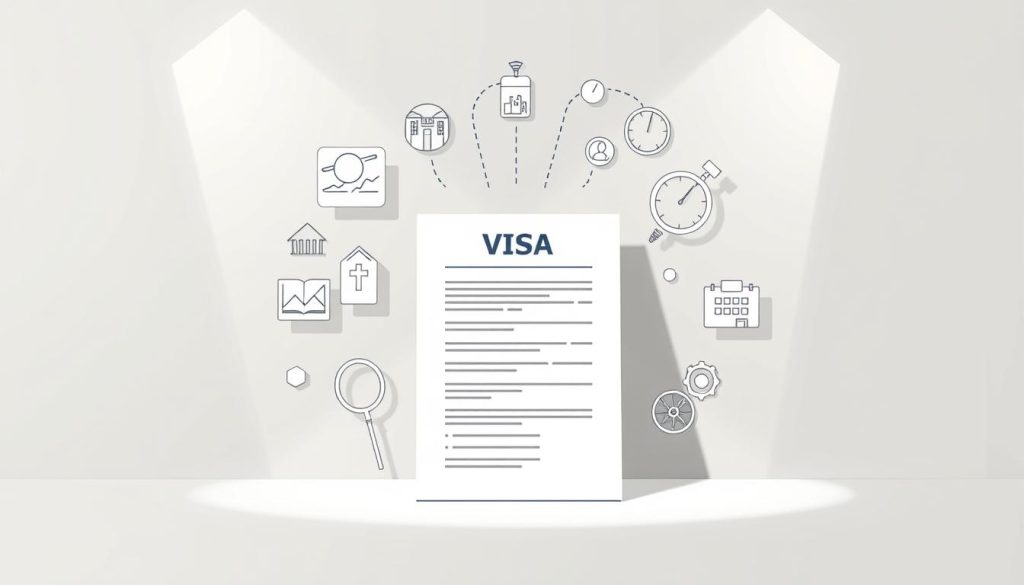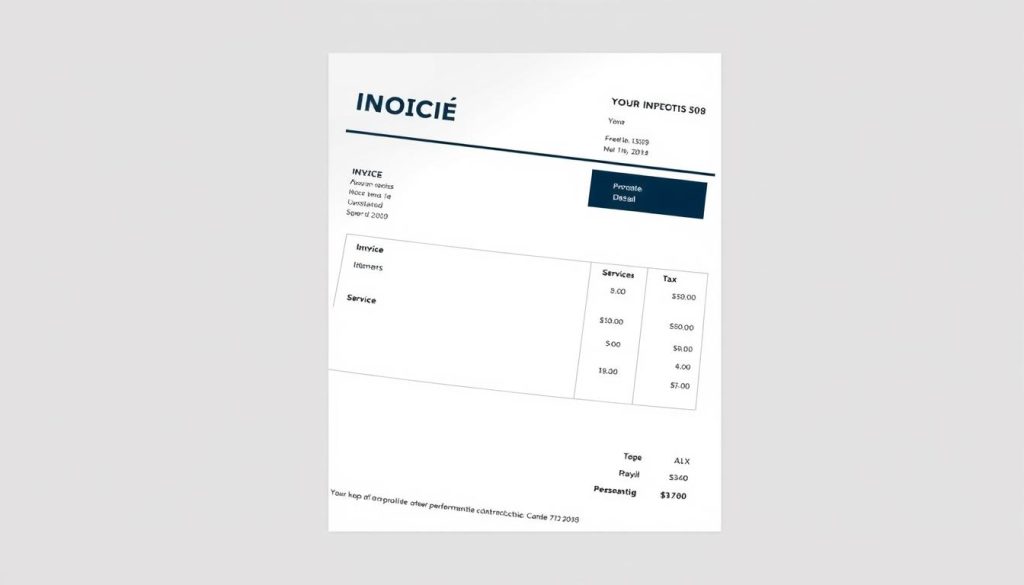Are you considering a career as an independent contractor but unsure about the security and support available for your profession?
Working as a contractor offers professionals the freedom and flexibility they need in their career. In France, the independent contractor model has seen a significant rise, with a 92% increase over the past decade.
This growth is attributed to the unique security and support opportunities available through specialized legal structures designed to protect professional assets, allowing you to focus on your work and business.
Table of Contents
Key Takeaways
- Understanding the legal definitions and registration processes for independent contractors in France.
- Managing finances and tax obligations as an independent contractor.
- Accessing resources for a successful and secure independent career.
- Exploring the protections and incentives offered to independent contractors in France.
- Navigating the process of establishing and growing your career as a contractor.
Understanding Independent Contractors in France
In recent years, France has seen a remarkable rise in the number of individuals choosing to work as independent contractors. This shift is part of a broader trend towards more flexible and autonomous working arrangements.
Legal Definition and Classification
In France, an independent contractor is considered a self-employed individual who operates outside the traditional employer-employee framework. The legal classification of independent contractors is crucial for determining their rights and obligations under French law.
The Rise of Independent Contracting in France
The number of independent contractors in France has grown significantly, with a 92% increase over the past decade, according to a study by the Boston Consulting Group. Key factors driving this trend include:
- The COVID-19 pandemic, which accelerated the shift towards remote work and independent contracting.
- Evolving business laws that offer greater protections and incentives for independent contractors.
- A growing desire among professionals for greater freedom, fulfillment, and work-life balance.
- The development of a robust ecosystem of support services and resources tailored to contractor France professionals.
This trend underscores a fundamental shift in the labor market, with working independent contractor becoming an increasingly viable and attractive career path.
Benefits of Becoming an Independent Contractor
The decision to become an independent contractor can be a game-changer, providing financial advantages and a more autonomous work environment. As you consider this career path, it’s essential to understand the benefits that come with it.
Financial Advantages
As an independent contractor, you have the potential to increase your earnings by taking on multiple projects and clients. This flexibility allows you to manage your workload and financial expectations more effectively. Additionally, you can deduct business expenses on your tax return, reducing your taxable income.
| Financial Benefit | Description |
|---|---|
| Increased Earning Potential | Take on multiple projects and clients to boost your income. |
| Tax Deductions | Deduct business expenses to reduce your taxable income. |
Flexibility and Autonomy
One of the most significant benefits of being a contractor is the flexibility and autonomy it offers. You have the freedom to choose your work schedule, allowing you to balance your professional and personal life more effectively. You can also select your clients and projects, ensuring that your business aligns with your goals and interests.
- Design your professional life around personal priorities.
- Choose your work location, whether it’s a home office or a coworking space.
- Select clients and projects that align with your interests and goals.
Choosing the Right Legal Structure
Selecting the appropriate legal structure is a crucial step for independent contractors in France. This decision can impact your business’s liability, tax obligations, and overall success.
Micro-Entrepreneur (Auto-Entrepreneur)
The micro-entrepreneur status is a simplified business registration process, ideal for small-scale activities. It offers a straightforward tax regime and reduced social security contributions. However, it has limitations on annual turnover and is not suitable for all types of business activities.
Individual Entrepreneur (EI)
As an individual entrepreneur, you are personally responsible for your business’s debts and liabilities. This structure is relatively simple to set up and manage, but it doesn’t provide the same level of asset protection as more complex structures. For more information on the legal aspects of being an independent contractor, you can visit this resource.
Other Business Structures (SARL, SAS, etc.)
More complex business structures like SARL (Société à Responsabilité Limitée) and SAS (Société par Actions Simplifiée) offer enhanced protection and growth potential. The SARL structure creates a separate legal entity, limiting your liability to the capital invested in the company and providing tax optimization opportunities. SAS structures offer flexibility in governance and are suitable for independent contractors planning to raise capital or bring on partners.
As your business grows, transitioning from a simpler structure like micro-entrepreneur to more complex entities is common. This transition can provide significant advantages for scaling your business activity and protecting your assets.
Visa Requirements for Non-French Nationals

Non-French nationals seeking to work as independent contractors in France must navigate specific visa requirements. The process involves several steps and requires careful preparation to ensure compliance with French immigration laws.
Entrepreneur/Profession Libérale Visa
The Entrepreneur or Profession Libérale visa is designed for foreign nationals who wish to establish themselves as independent contractors or professionals in France. This visa category requires applicants to demonstrate that their business is viable and that they have the necessary qualifications and resources to support themselves.
Documentation and Application Process
The visa application process is comprehensive and requires substantial documentation, including a detailed business plan, proof of financial resources, professional qualifications, and accommodation arrangements in France. Applicants must complete the long-stay visa application form available from the French consulate in their home country and submit it along with their supporting information.
| Required Documents | Description |
|---|---|
| Business Plan | A detailed plan outlining your business activities and financial projections. |
| Proof of Financial Resources | Evidence that you have sufficient funds to support yourself during the initial establishment period. |
| Professional Qualifications | Diplomas, certificates, or other documents proving your professional competence. |
| Accommodation Arrangements | Proof of where you will be living in France. |
After arriving in France with your visa, you’ll need to register with the French Office of Immigration and Integration (OFII) and complete any required medical examinations or integration contracts. This step is crucial for non-EU citizens coming from countries outside the EU.
Registering as an Independent Contractor

As an aspiring independent contractor in France, navigating the registration process is your first step towards a secure and supported career. Registering as an independent contractor involves several key steps that ensure your business is legitimate and compliant with French regulations.
Online Registration Process
The online registration process for independent contractors in France is streamlined and efficient. You will need to visit the official French government website, centre de formalités des entreprises, to initiate your registration. This process requires you to provide detailed information about your business activity and legal structure.
Required Documentation
To complete your registration, you will need to gather and submit the required documentation. This typically includes identification documents, proof of address, and any relevant professional qualifications or certifications. Ensuring that your documentation is in order will help to avoid delays in the registration process.
Obtaining Your SIRET and SIREN Numbers
Once your registration is complete, you will be issued a SIREN number (Système d’identification du répertoire des entreprises), which serves as your unique business identifier for all official purposes in France. You will also receive a SIRET number (Système d’Identification du Répertoire des Établissements), which combines your SIREN with a five-digit establishment code. Your SIRET number is essential for client invoices and must appear on all your business documents.
These identification numbers are crucial for legally operating as an independent contractor in France. They remain with your business throughout its existence and are used by tax authorities, social security agencies, and other government entities to track your business activity.
Setting Up Your Business Finances
As an independent contractor in France, establishing a solid financial foundation is crucial for your business’s success. This involves several key steps, including opening a dedicated business bank account and implementing a robust financial record-keeping system.
Opening a Business Bank Account
Opening a separate bank account for your business is essential for maintaining a clear distinction between your personal and professional finances. This separation simplifies financial management and is crucial for tax purposes. When selecting a bank, consider factors such as fees, online banking capabilities, and customer support. Many banks offer specialized services for independent contractors and small businesses, including simplified accounting solutions and streamlined invoicing processes.
Financial Record-Keeping Requirements
Maintaining accurate and comprehensive financial records is vital for managing your business effectively and complying with French tax regulations. As an independent contractor, you are required to keep a « livre de recettes » (receipt book) to document all client payments received. Additionally, it’s advisable to track all business expenses, as these can be deductible for tax purposes. Implementing a digital accounting system can simplify this process, reduce errors, and save time.
- Maintain a chronological record of all invoices issued and payments received.
- Keep track of business expenses to maximize tax deductions.
- Ensure your financial records are securely stored, either physically or digitally, for at least 10 years.
| Record Type | Retention Period | Purpose |
|---|---|---|
| Financial Statements | 10 years | Accounting and Audit |
| Tax Records | 6 years | Tax Audit and Compliance |
| Invoices and Receipts | 10 years | Financial Tracking and Tax Deductions |
Creating Professional Invoices

Understanding how to create a professional invoice is vital for independent contractors to maintain a healthy cash flow and comply with French regulations. As an independent contractor in France, your invoice is not just a bill; it’s a document that represents your professionalism and compliance with local laws.
Essential Invoice Elements
Your invoice must include several essential elements to be considered valid. These include your name and address, the client’s name and address, a unique invoice number, and the date of issue. Additionally, you must provide a detailed description of the services rendered, the amount charged, and the applicable VAT rate or the mention of VAT exemption.
If you’re exempt from VAT under the « Franchise de TVA » system, you must include the specific legal mention « TVA non applicable – article 293 B du CGI » on all your invoices. Independent contractors who have opted for VAT registration must include their VAT identification number and clearly display the applicable VAT rate and amount on each invoice.
Special Mentions and Legal Requirements
Certain legal requirements must be met when creating invoices. For instance, if you’re providing services to clients in other EU countries, special VAT rules apply, and you must reflect this in your invoicing with appropriate mentions regarding reverse-charge mechanisms. Additionally, late payment penalties and conditions must be specified on invoices according to French commercial law.
- If you’re exempt from VAT under the « Franchise de TVA » system, include « TVA non applicable – article 293 B du CGI » on your invoices.
- Independent contractors who have opted for VAT registration must include their VAT identification number and clearly display the applicable VAT rate and amount.
- For certain regulated professions, invoices must include additional information such as professional insurance details or qualification references.
- Late payment penalties and conditions must be specified according to French commercial law.
- When providing services to clients in other EU countries, special VAT rules apply.
Understanding the French Tax System for Independent Contractors
Understanding the French tax system is vital for independent contractors to ensure compliance and optimize their tax obligations. As an independent contractor in France, you are subject to a specific set of tax regulations that can impact your financial stability and business operations.
Income Tax Brackets and Rates
The French income tax system is progressive, meaning that the tax rate increases as your income increases. For the tax year 2023, the income tax brackets range from 0% to 45%. The tax rates are applied to your taxable income, which is your total income minus allowable deductions. It’s essential to understand how these brackets work to manage your tax liability effectively. For instance, if you’re a micro-entrepreneur, your taxable income will be calculated based on your turnover, and you’ll be taxed accordingly.
Business Activity Categories
In France, independent contractors are categorized under different business activity categories for tax purposes, primarily BIC (Benefice Industriel et Commercial) for commercial activities and BNC (Benefice Non Commercial) for non-commercial activities. The category you’re classified under affects how your income is taxed and reported. For example, if you’re classified under BIC, you’ll report your business earnings on Form 2031, while BNC filers will use Form 2035. Understanding your business category is crucial for accurate tax filing.
Tax Declarations and Deadlines
The French tax year follows the calendar year, and tax declarations are typically due between April and June of the following year. Independent contractors must file their tax declarations online through the official impots.gouv.fr website. The main tax form for independent contractors is Form 2042-C-PRO, which must be submitted alongside the standard Form 2042 for personal income tax declaration. Missing the tax declaration deadline can result in penalties of 10% of the tax due, making it essential to mark these dates in your business calendar.
To avoid any issues, it’s crucial to stay informed about the tax deadlines and requirements. You can benefit from simplified quarterly or monthly declarations of turnover through the auto-entrepreneur.urssaf.fr portal if you’re a micro-entrepreneur, which calculates your social charges automatically.
Managing VAT Obligations
As an independent contractor in France, understanding your VAT obligations is crucial for your business’s financial health. VAT, or Value-Added Tax, is a consumption tax that is levied on the value added to goods and services. Managing your VAT obligations effectively is key to avoiding penalties and ensuring compliance with French tax laws.
VAT Registration Thresholds
Independent contractors need to be aware of the VAT registration thresholds. For the years 2020-2022, if your earnings from freelance work do not exceed €94,300 for commercial and industrial activities or €36,500 for the supply of services, you can benefit from the « Franchise de TVA » exemption. This means you won’t charge VAT on your goods and services, nor can you reclaim VAT on your business expenses.
- Annual turnover below the VAT thresholds qualifies you for the « Franchise de TVA » exemption.
- The thresholds are subject to periodic updates, so it’s essential to stay informed.
VAT Exemptions and « TVA Non Applicable »
If you’re exempt from VAT, you must include the specific legal mention « TVA non applicable – article 293 B du CGI » on all your invoices. While this simplifies your accounting, it means you cannot recover VAT on business purchases. However, you can opt into the VAT system voluntarily if it benefits your business, particularly if you have significant expenses with VAT that you could reclaim.
Social Security Contributions
Social security contributions are a vital aspect of being an independent contractor in France, impacting your financial stability and benefits. As an independent contractor, you’re required to contribute to the French social security system, which provides various benefits, including healthcare, retirement pensions, and unemployment benefits.
Understanding the French Social Security System
The French social security system is designed to provide a safety net for all workers, including independent contractors. Your contributions fund various social benefits, ensuring you’re protected in case of illness, unemployment, or retirement. The system is complex, with different rates and rules applying based on your legal status as an independent contractor.
- Micro-entrepreneurs benefit from simplified contribution calculations based on their turnover.
- Independent contractors under other legal structures pay contributions based on their actual or estimated profits.
- The « versement libératoire » option allows eligible micro-entrepreneurs to pay both social security contributions and income tax through a single simplified payment.
Calculation and Payment Methods
The calculation and payment of social security contributions vary significantly depending on your legal structure. Micro-entrepreneurs pay a flat percentage of their turnover, while other structures pay based on actual or estimated profits. For instance, auto-entrepreneurs can manage their contributions through the auto-entrepreneur.urssaf.fr portal, with rates ranging from 12.8% to 22.2% of turnover.
First-time independent contractors benefit from a gradual increase in contribution rates over the first three years, providing financial relief during the business establishment phase. Understanding these nuances is crucial for managing your finances effectively and ensuring compliance with French regulations.
Protecting Your Business with Insurance
As an independent contractor in France, safeguarding your business with the right insurance coverage is crucial for long-term success. Insurance policies can protect you against various risks, ensuring that your business remains resilient in the face of unforeseen challenges.
Professional Liability Insurance
Professional liability insurance, or assurance en responsabilité civile professionnelle, is compulsory for certain regulated professions. This insurance protects you against claims of negligence or errors in your professional services. It is essential for maintaining your professional reputation and financial stability.
Other Essential Insurance Coverage
Beyond professional liability insurance, there are other critical insurance policies to consider:
- Business Property Insurance: Protects your professional equipment, tools, and workspace from damage, theft, or loss.
- Income Protection Insurance (Prévoyance): Provides financial support if you’re unable to work due to illness or injury.
- Cyber Liability Insurance: Essential for protecting against data breaches and cyber attacks, especially if you handle client data or operate online.
- 10-Year Liability Insurance (assurance décennale): Mandatory for construction professionals, covering structural defects in buildings for a decade after completion.
| Insurance Type | Description | Mandatory/Optional |
|---|---|---|
| Professional Liability Insurance | Protects against claims of negligence or errors | Mandatory for regulated professions |
| Business Property Insurance | Protects professional equipment and workspace | Optional but recommended |
| Cyber Liability Insurance | Protects against data breaches and cyber attacks | Optional but increasingly important |
Avoiding Contractor Misclassification

The distinction between an independent contractor and an employee is critical, as misclassification can lead to significant legal and financial repercussions. Ensuring that your working arrangement is correctly classified is essential for both you and your clients.
Signs of Misclassification
Misclassification occurs when the working relationship between a company and an independent contractor is deemed to be that of an employer and employee. Several factors can indicate misclassification, including:
- Excessive control exerted by the client over the contractor’s work
- Integration of the contractor’s work into the client’s core business
- The contractor’s inability to negotiate rates or refuse work
- The provision of equipment or tools by the client
- A long-term or exclusive working arrangement
Being aware of these signs can help you and your clients avoid potential misclassification issues.
Legal Consequences for You and Your Clients
The consequences of misclassification can be severe for both independent contractors and their clients. Some potential outcomes include:
| Consequence | Description | Impact |
|---|---|---|
| Financial Penalties | Fines and back taxes | Up to €45,000 for clients |
| Retroactive Employment | Clients may be required to hire misclassified contractors as employees | Additional benefits and protections for contractors |
| Tax Audits | Investigations into business practices | Potential impact on all client relationships |
To mitigate these risks, it’s essential to have a clearly written contract that defines the independent nature of your working relationship. Ensuring that your working practices align with your independent contractor status is also crucial.
Transitioning from Contractor to Employee Status
As an independent contractor, you may find yourself considering a shift to employee status, a decision that requires careful thought and planning. This transition involves evaluating thebenefitsand potential drawbacks, as well as discussing the change with yourclient.
When to Consider Employment
The decision to transition from acontractorto an employee should be based on various factors, including job security, financial stability, and personal preferences. If you find that your work arrangement is becoming more permanent or you’re seeking more stability, it might be time to consideremployment.
Approaching the Conversation with Clients
When considering a transition, it’s crucial to approach the conversation with yourclientprofessionally. Schedule a formal meeting to discuss the possibility, presenting thebenefitsto the client, such as increased loyalty and reduced legal risks of misclassification. Be prepared to discuss compensation adjustments and consider proposing a trial period as an employee. If the client is hesitant, suggest consulting with a legal expert together to understand the implications and benefits of converting yourcontractto an employment arrangement.
Digital Tools and Platforms for Independent Contractors

As an independent contractor in France, leveraging the right digital tools is crucial for managing your business efficiently. The landscape of freelance work has been significantly enhanced by the advent of various digital platforms that cater to the specific needs of independent contractors.
Payment and Invoicing Solutions
Effective payment and invoicing solutions are vital for maintaining a healthy cash flow. Specialized tools like Indy and Freebe simplify financial management for independent contractors with features tailored to French tax requirements.
Accounting and Tax Software
For managing taxes and accounting, cloud-based solutions provide real-time financial insights, helping you track profitability and prepare for french tax deadlines. Software like Georges automatically calculates your social security contributions and tax obligations based on your entered income and expenses.
- Automatically categorize transactions and reduce manual data entry.
- Generate accurate declaration for both income tax and social security contributions.
- Simplify financial record-keeping with features tailored to French regulations.
By utilizing these digital tools and platforms, independent contractors in France can streamline their operations, reduce administrative burdens, and focus on their core business activities.
Resources and Support Networks
As an independent contractor in France, having the right resources and support networks is crucial for your career stability and growth. Various organizations and communities provide valuable assistance, helping you navigate the complexities of independent contracting.
Government Resources
Government resources play a vital role in supporting independent contractors. In France, you can access information and guidance through official government websites and local business support offices. These resources cover a range of topics, from legal requirements to tax obligations, ensuring you’re well-informed about your responsibilities and rights as a contractor.
Professional Associations and Communities
Beyond government resources, professional associations and communities offer specialized support. For instance, the Fédération des Auto-Entrepreneurs (FEDAE) advocates for the interests of independent contractors, providing legal advice and networking opportunities. Industry-specific associations also exist, offering continuing education and representation for contractors in various fields. Additionally, online communities like Freelance in France and Expatriates in Paris provide peer support and practical advice. Coworking spaces throughout France serve as hubs for independent contractors, hosting community events and workshops. International organizations like the Freelancers Union offer resources valuable for contractors working with clients across multiple countries.
Conclusion
The journey to becoming a successful independent contractor in France requires careful planning and compliance with regulations. As an independent contractor, you have the potential to enjoy exceptional freedom, flexibility, and professional growth.
The French system provides significant protections for contractors through specialized legal structures that separate personal and professional assets. To maintain this protection and ensure long-term success, staying compliant with tax obligations, including personal income tax and social security contributions, is essential.
Building a support network of professional advisors, digital tools, and community resources will significantly ease your journey as an independent contractor. With the continued growth of independent contracting in France, the regulatory environment continues to evolve, making it important to stay informed about changes that may affect your business operations and french tax requirements.
By understanding the progressive income tax system and other tax implications, you can better navigate your contractor work and maintain a thriving business.
FAQ
What are the key benefits of registering as a micro-entrepreneur in France?
Registering as a micro-entrepreneur in France provides a simplified administrative process, a single annual tax return, and exemption from certain taxes, making it an attractive option for those starting out.
How do I obtain a SIRET number for my business in France?
To obtain a SIRET number, you must register your business with the relevant authorities, providing required documentation, such as identification and business activity information.
What are the VAT registration thresholds in France?
In France, businesses with an annual turnover below a certain threshold (€82,200 for services or €91,000 for goods in 2023) are not required to register for VAT, unless they opt for it voluntarily.
How are social security contributions calculated for business owners in France?
Social security contributions in France are calculated based on your business income, with rates varying depending on the type of business activity and your personal circumstances.
What types of insurance are essential for business owners in France?
Essential insurance coverage for business owners in France includes professional liability insurance, as well as other types of insurance, such as business interruption insurance, depending on the nature of your business.
How can I avoid misclassification as a business owner in France?
To avoid misclassification, ensure you meet the criteria for a legitimate business owner, including having control over your work, setting your own rates, and being responsible for your own taxes and social security contributions.
What are the key differences between BIC and BNC business activity categories in France?
BIC (Bénéfices Industriels et Commerciaux) applies to commercial and industrial activities, while BNC (Bénéfices Non Commerciaux) applies to non-commercial activities, such as liberal professions; the distinction affects tax obligations and social security contributions.
How do I transition from business owner to employee status in France?
If you wish to transition from business owner to employee status, you should discuss this with your clients, ensuring a smooth transition, and be aware of the implications for your taxes, social security contributions, and employment rights.





